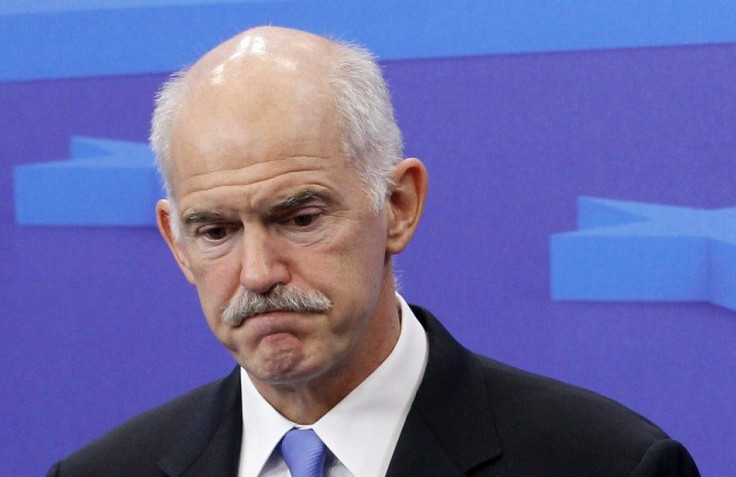Greece Swallows Austerity, Sells Country, Goes Down Wrong Path
COLUMN: The Greeks should be compensated for not rocking the boat with its sovereign debt. If it isn’t, it should just default and pull out of the euro.

Greece is trading austerity measures for bailout loans from Europe. Loans, however, aren't worth the price of bondage.
Right now, Europe is cramming policies down the throats of the Greek people and infringing on the sovereignty of the Greek nation. Greece has even given up a degree of its territorial integrity by putting up parts of its islands for long-term leases. It's also selling off stakes in government-owned companies.
The Greek government is desperately trying to raise cash because the core Europeans are threatening Greece with a national Greek default.
The dirty secret of international finance that the core Europeans are not telling Greece, however, is that defaulting is a good option.
In 2002, Argentina told off its creditors and stopped paying. Eventually, it was able to strike a highly favorable deal that extended the maturity of their loans and significant cut their nominal value. Today, the Argentine economy is doing just fine.
In 1998, the Russians defaulted on their debt, much to the anger of the international community. Shortly after the default, the debt was restructured on favorable terms and the Russian economy experienced a decade-long boom.
Most recently, Iceland refused to bail out its banks and allowed them to default. Today, its economy is doing just fine.
The dirty secret of sovereign defaults is that the creditors are at the mercy of the defaulter because they have no enforcement mechanisms. Sure, the international bond market could shun the pariah country, but that only lasts for a little bit. In a few years, the only thing that will matter is how the country's economy is doing.
A sovereign default, ironically, is the market's natural mechanism to set a country on the path of reform and recovery.
Here is what usually happens in a default: international investors pull their money out, the country's currency plummets, and inflation accelerates. That's the painful part.
However, default forces the government to cut spending. Moreover, it makes exports cheap and imports expensive, which usually sets off a boom in viable domestic industries. Lastly, it cuts down on the nominal value of debt, which frees the economy for growth. Eventually, the lower debt burden actually attracts new international debt investors.
Greece, however, will have none of that if the core Europeans were to have their way.
Instead, Greece will become a zombie state that's mired in a mountain of debt and no private investor will lend to it under reasonable interest rates because of it. More importantly, Greece's currency will not depreciate, so it'll never be valued at the market equilibrium rate at which Greek industries can become competitive.
Greece is no saint and bears blame for getting itself into heavy debt. However, it's currently doing the European financial community a huge favor by going along with Europe's plan and not rocking the boat by defaulting.
Meanwhile, Germany and France have enjoyed a euro that was dragged down by Greece and other peripheral countries, thereby giving their exporters a huge competitive advantage. German and French taxpayers should realize this and not erroneously believe that they're bailing out Greece without receiving any benefits in return.
The Greeks need to be more assertive. In return for maintaining stability, it should demand donations, not loans, from the core Europeans so that their debt burden is reduced. It also needs to cut wages internally and demand that countries like Germany raise wages to mimic the effect of currency devaluation.
If its demands are refused, Greece should just default and pull out of the euro. It'll be painful for Europe and painful for Greece, but at least Greece will have an economic future to speak of. Perhaps more importantly, its sovereignty will once again be respected.
© Copyright IBTimes 2025. All rights reserved.





















